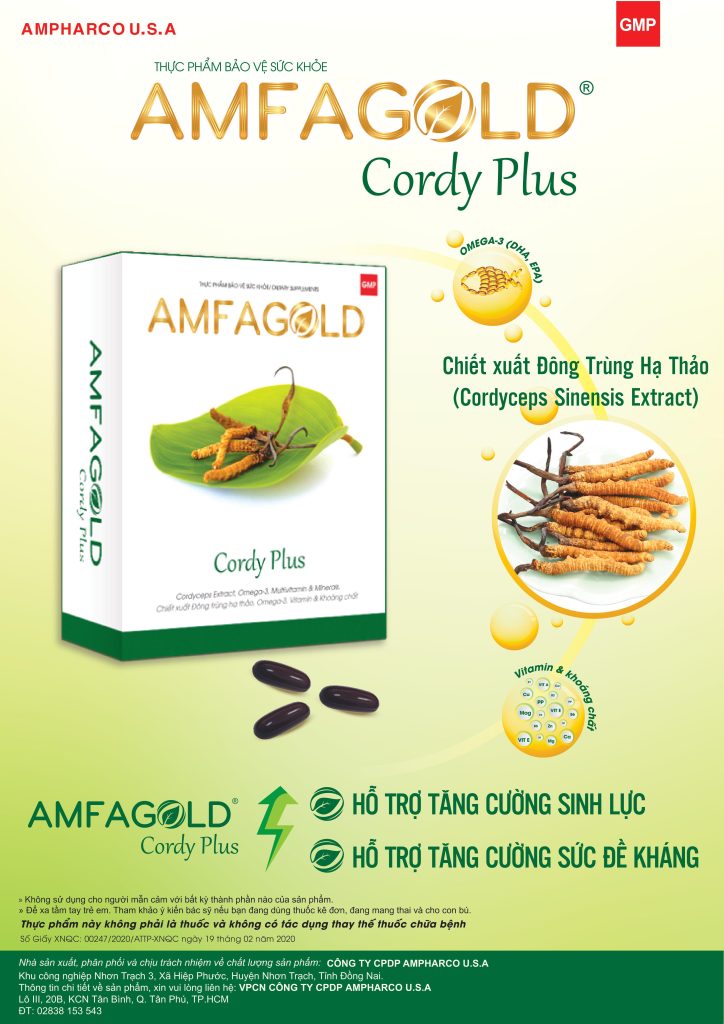TIPS FOR STAYING HEALTHY IN THE AUTUMN
The weather is entering a transition period, from summer to autumn. Autumn weather is considered the most pleasant of the year. However, the difference in temperature between day and night and the dry weather cause resistance to decrease, leading to the risk of disease.

Do you feel tired, exhausted and get sick in the autumn?
Autumn is period when viruses and bacteria that cause respiratory infections thrive making us susceptible to colds, flu and other respiratory illnesses (1), (2). Autumn often has shorter daylight hours, causing the body to receive less vitamin D – a nutrient essential to the health and functioning of your immune system. (3)
Autumn is often a busy time with work, school and other activities after summer vacation. Increased stress can weaken the immune system, making the body more susceptible to illness (4)
To ensure you’re prepared to face the challenges of weather change, incorporating immune-boosting supplements!
Here are some essential supplements to support boosting immune system:
- Cordyceps (5), (6)
Cordyceps have been used since ancient times to help prevent and treat infection and disease.
Research suggests Cordyceps may help boost the immune system.
A 2019 study in 79 adults found that supplementing with 1.7 grams (g) of cordyceps mycelium culture extract led to a 38% increase in the activity of natural killer (NK) cells, a type of white blood cell that protects against infection.
Cordyceps is a fungus that has long been used in in traditional Chinese medicine. Some people use it to try to boost energy and strength, improve immunity, enhance kidney function, and improve sexual dysfunction. It has also been used to treat cough and fatigue. Cordyceps is known as an adaptogen, which means it may help your body adapt to stress.

- Fish oil (7)
Fish oil contain omega-3 fatty acids. The two primary omega-3s in fish oil are eicosapentaenoic acid (EPA) and docosahexaenoic acid (DHA).
DHA has been shown to have anti-inflammatory effects that reduce cytokine levels and promote gut health. It may also decrease the inflammation and muscle damage that occur after exercise.
- Vitamin D (5), (8)
Vitamin D enhances the pathogen-fighting effects of monocytes and macrophages (white blood cells that are important parts of your immune defens) decreases inflammation, which helps promote immune response.
Research suggests that supplementing with vitamin D may help improve immune response.
A 2019 review found that supplementing with vitamin D significantly decreased the risk of respiratory infections in people deficient in this vitamin and lowered infection risk in those with adequate vitamin D levels.
The recommended daily intake of vitamin D is 10 micrograms (400 IU) for adults (19-60 year) and 15 micrograms (600 IU) for elders (over 60 year).
- Zinc (5), (8)
Zinc is a mineral commonly added to supplements and other healthcare products.
Zinc deficiency may affect your immune system’s ability to function properly, resulting in an increased risk of infection and disease, including pneumonia.
Zinc deficiency affects around 2 billion people worldwide and up to 30% of older adults.
Research suggests that zinc supplements may be beneficial for people who are already sick. For example, it could help reduce the duration of the common cold.
Taking zinc long-term is typically safe for healthy adults, as long as the daily dose is under the set upper limit of 40 milligrams (mg) of elemental zinc per day.
- B complex vitamins (5)
B vitamins, including B12 and B6, are important for a healthy immune response.
Yet, many adults are deficient in them, which may negatively affect immune health.
By incorporating these immune-boosting supplements into your daily diet, you can provide your body with the essential nutrients it needs to navigate the challenges that come with the change in seasons. Remember, the key to optimal health is a holistic approach that includes proper nutrition, regular exercise, and a positive mindset.
If you are looking for supplements, it’s important to:
- Buying supplement from a reputable manufacturer, preferably with a certified Good Manufacturing Practices (GMP) facility.
- Following the dosage instructions on the product packaging.
- Checking with a healthcare professional first if you’re pregnant or nursing, if you have a medical condition, or if you take over-the-counter or prescription medication.
References:
- https://www.medicalnewstoday.com/articles/323431#rhinoviruses-and-the-common-cold
- https://www.who.int/europe/news-room/questions-and-answers/item/covid-19–influenza–and-other-respiratory-viruses—2023-2024-autumn-and-winter-season
- https://distance.physiology.med.ufl.edu/about/articles/physiology/what-are-the-effects-of-not-getting-enough-sunlight/
- https://www.healthline.com/health-news/autumn-anxiety
- https://www.healthline.com/nutrition/immune-boosting-supplements
- https://www.webmd.com/vitamins-and-supplements/cordyceps
- https://www.healthline.com/nutrition/anti-inflammatory-supplements#fish-oil
- The Circular No. 43/2014/TT-BYT dated November 24, 2014 by the Minister of Health regulates the management of functional foods

- 1. Energize and focus your new year with Ginseng and Ginkgo Biloba
- 2. CAN PEOPLE WITH HYPERTENSION USE CORDYCEPS?
- 3. COMMON HABITS CAUSES CEREBRAL ISCHEMIA
- 4. THE EXPERT’S SHARING: THE KEY TO START A NEW DAY FULL OF ENERGY
- 5. GINSENG – “SPECIAL” HERBAL MEDICINE FOR FATIGUE PEOPLE
- 6. THE ROLE OF HERBAL IN INCREASING PHYSICAL & MENTAL HEALTH

